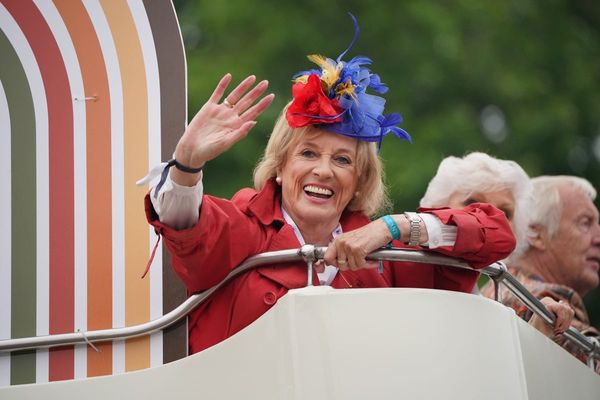FORT WORTH, Texas _ Beto O'Rourke is awakening a grass-roots movement in Texas _ one that's led by gray-haired, once-loyal Democrats who are aggressively working to end decades of their own political dormancy in Texas.
It's not the sleeping Latino base that Democrats have long believed would help them flip Texas blue _ and whose engagement remains a critical question for the party's prospects of a full-blown comeback in a state that hasn't voted for a Democrat for president since Jimmy Carter in 1976 _ or elected a Democrat statewide since 1994.
Yet O'Rourke's energetic trek through rural parts of the state has electrified a different piece of the base that's also been missing for his party in recent years: Older supporters with the time to organize the nuts and bolts of a grass-roots campaign.
O'Rourke's army of retirees has spent the last year and a half knocking on doors, filling much-hyped campaign rallies and wallpapering the state with his campaign swag.
While Democrats concede their party is still struggling to reach other critical elements of their base _ in particular voters of color _ public polling now shows the El Paso congressman tailing Texas Sen. Ted Cruz by single digits.
National Republicans are now considering shifting resources to help an incumbent they've believed was safe, while liberal groups are eyeing the Texas Senate race to give O'Rourke more help.
"For a Democrat to win in Texas you have to build a coalition that's a racial coalition, an ideological coalition, and also a generational coalition," said Matt Angle, a Democratic strategist who ran Wendy Davis's failed gubernatorial campaign in 2014.
"(But) you also need people to make the phone calls, knock on the doors, talk to their friends and their neighbors and to express enthusiasm," added Angle. "People who actually put time in to go to events ... have to have the time to do it."
Packed into Hill Country Veterans Center in Kerrville, Texas, earlier that month, a crowd of roughly 400 people _ mostly retirees _ endured grueling heat to hear O'Rourke speak on a Sunday morning.
When the event ended, gray-haired O'Rourke supporters piled into their cars to hear him speak at the next rally in Johnson City, 50 miles away. Their caravan stopped to add cars waiting along the route at a parking lot in Gillespie County, which gave Trump roughly 80 percent of its vote in 2016.
A supporter at that pit stop distributed "Fredericksburg Democrat" bumper stickers to a crowd already decked out in O'Rourke swag, down to the dog dressed in homemade "Beto" sign.
"I guess I had my antenna on looking for people to get behind (after Trump's election) because of situations (in my personal life)," said Sherman Hartley Moore, a retired engineer from Gainesville, Texas, who first heard about O'Rourke when the congressman livestreamed a road trip to Washington, D.C. with Rep. Will Hurd, R-Texas.
"When he (announced his Senate bid) I thought, well, let me learn more about him," said Moore, who has voted for Democrats in the past, but not previously been active in a campaign. "The next thing I heard he was in a pickup driving to all of the places I grew up (in rural North Central Texas)," added Moore, who followed O'Rourke's early travel on Facebook Live.
This year Moore has planned eight town halls, phone banks and field organizing events for O'Rourke. He became a delegate for his state party at the convention in Fort Worth this past June, and last week a Democratic Party office opened last week in his hometown of Gainesville, Texas.
Though Moore calls Trump's plans for health care and immigration his top issue concerns this year _ it's the 45-year-old O'Rourke who's convinced him to rededicate his life to the cause.
"Besides charisma and star-power ... he has a willingness to say 'I might not be the person you want to vote for, and not all of us are going to agree on everything,'" said Moore. Sizing up O'Rourke's appeal to voters of his age and demographic, Moore said: "They see the divisiveness and fear (under Trump) and they want more civil discourse in government."
Texas Democrats cast roughly 1 million primary votes this March, more than in any non-presidential election since 1994, and about twice as many as in the 2014 primary, when Davis was on the ballot.
Operatives from both parties attribute the increase primarily to former Democrats coming out of hibernation _ the folks now filling O'Rourke's rallies _ and not the new voters they need to make up for Republicans' traditional turnout advantage in a midterm.
"In the primary (Democrats) had a million voters, their second largest turnout in a long time," said Dave Carney, the architect of Texas Gov. Greg Abbott's campaigns and President George H. W. Bush's White House political adviser.
"But their new voters, the 400,000 people who voted this time that didn't vote in 2014, and very rarely in (previous recent election cycles)�� were registered Democrats who had just given up on the party," added Carney. "They're coming back to kick the tires, but that's not new voters."
O'Rourke faced that reality head-on last month at Americado taco bar in Fort Worth.
Despite calling in help from Fort Worth School Board member Jacinto Ramos Jr. and local Spanish-language band Latin Express to lure members of the community to the "Musica con Beto" event, Democratic organizers conceded most of the venue's packed courtyard didn't fit their target demographic.
"The more we educate Latinos on the importance of their vote, the more that we'll get them to come out and be confident (about) voting," said Valerie Ramos, vice president of El Voto es Latino, a Fort Worth-based political action committee that's endorsed O'Rourke and is trying to turn out Latino voters on his behalf.
Democrats acknowledge that's a problem O'Rourke has to solve if he's going to have a chance against Cruz.
"Any Republican candidate in Texas getting 40 percent or better (of the Hispanic vote) is going to be coasting to re-election," said Albert Morales, a Fort Worth native who serves as senior political director for the left-leaning polling firm Latino Decisions.
Yet pointing to the same primary statistics Republicans disparaged, Angle, the Democratic strategist, said the missing grass-roots element has been equally devastating to the party in recent years.
"Getting people who support you in general elections to become activists in primaries and start working on campaigns is important, and that's progress," said Angle. "The last Democrat that created that enthusiasm was (former Gov.) Ann Richards, and that was a generation ago."







